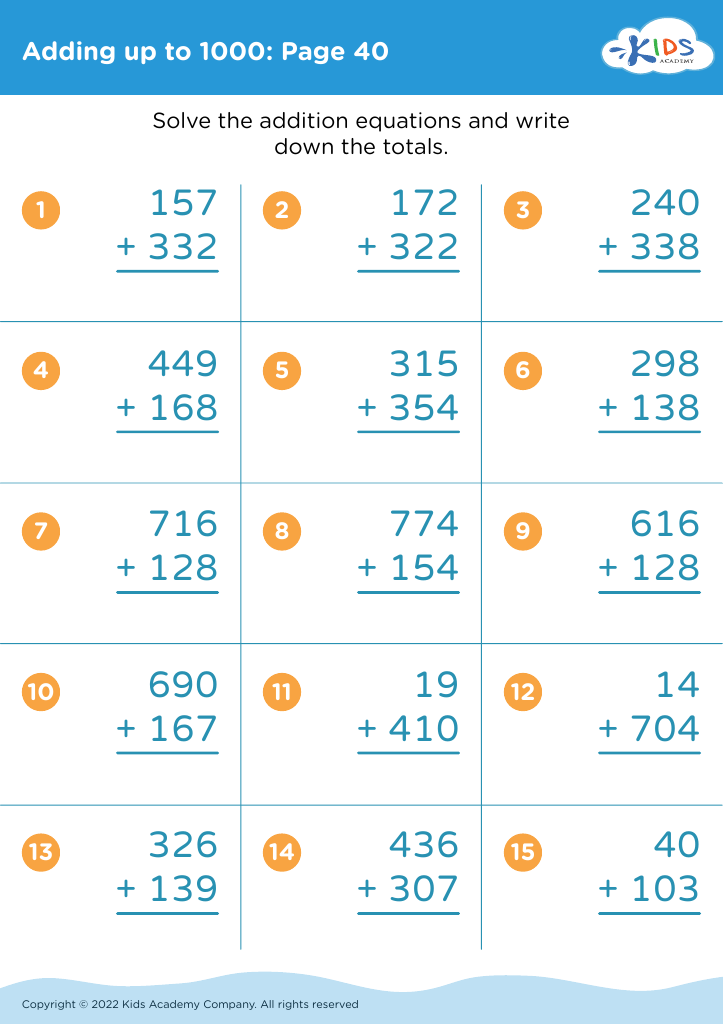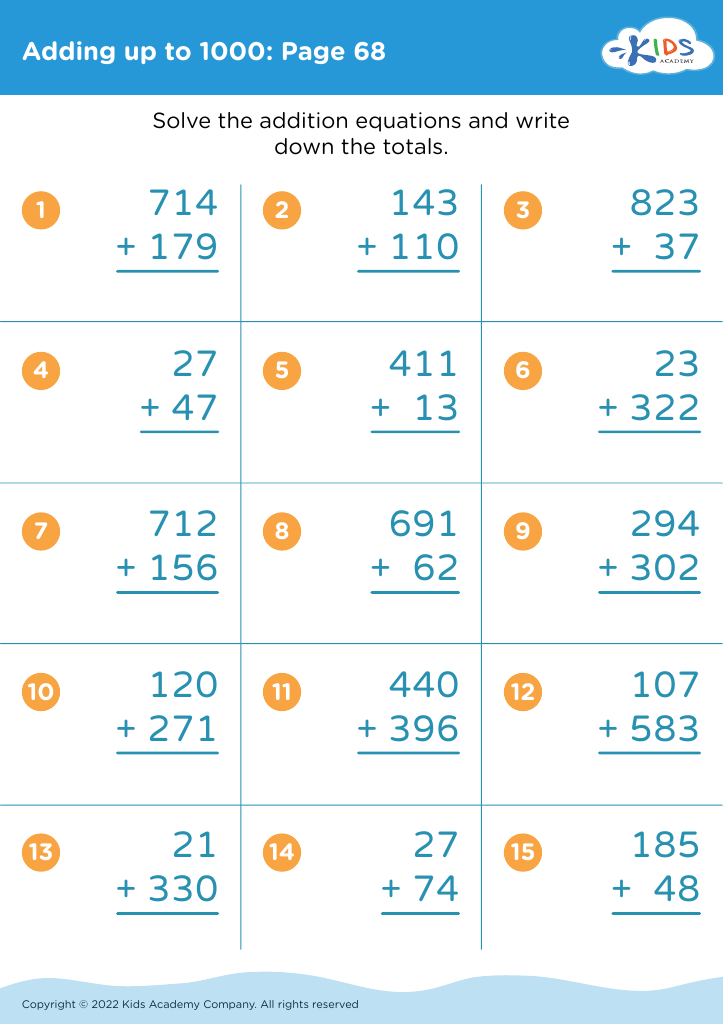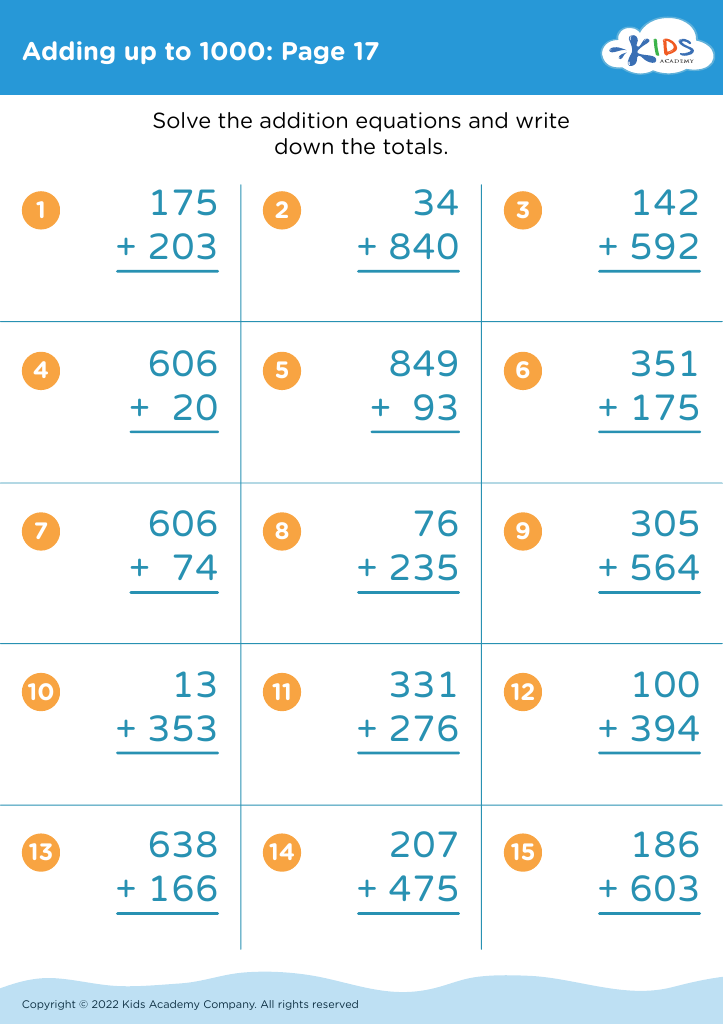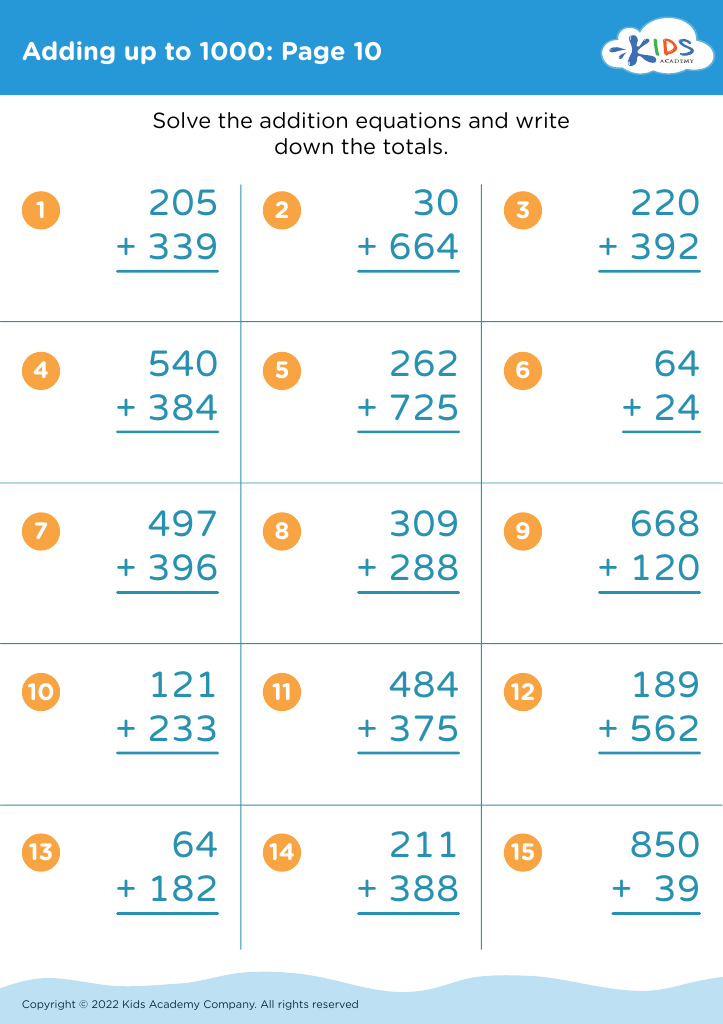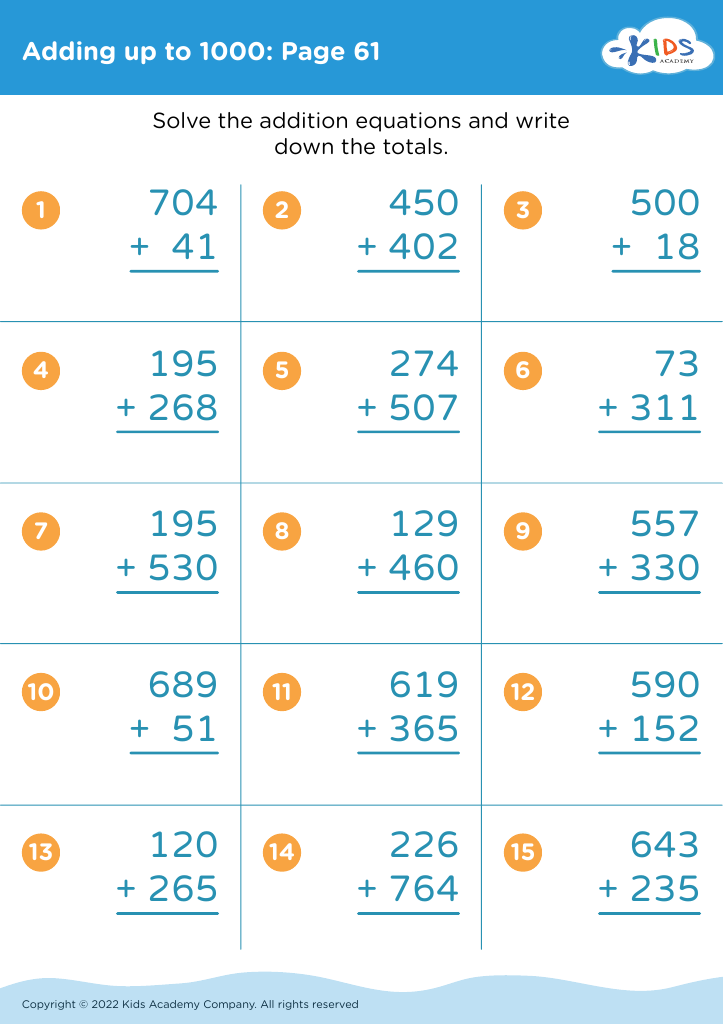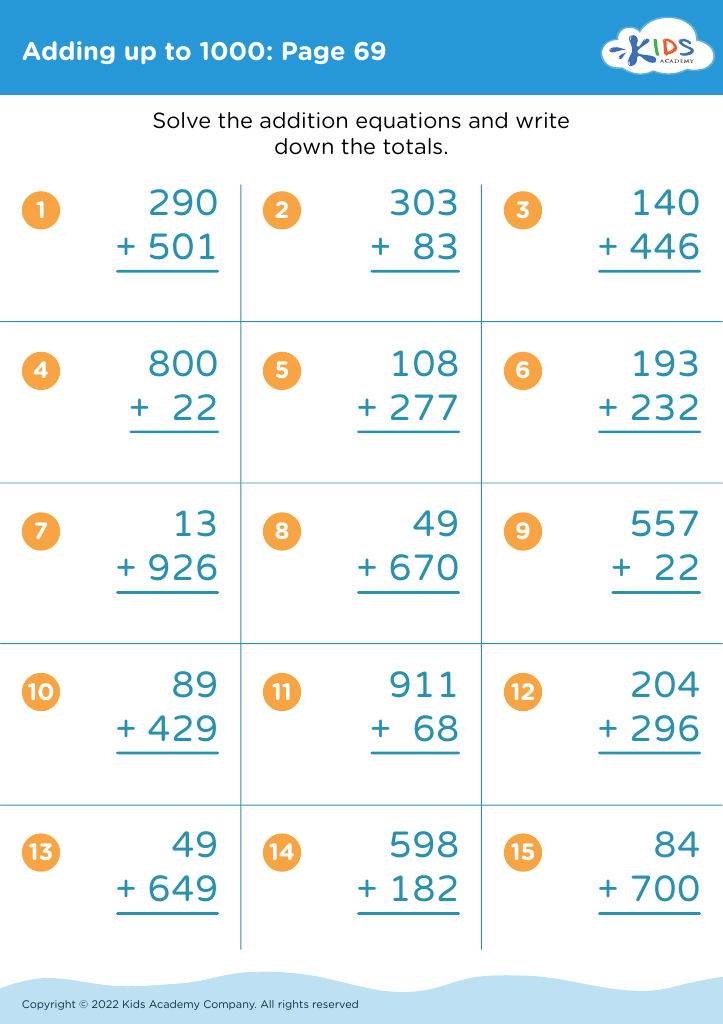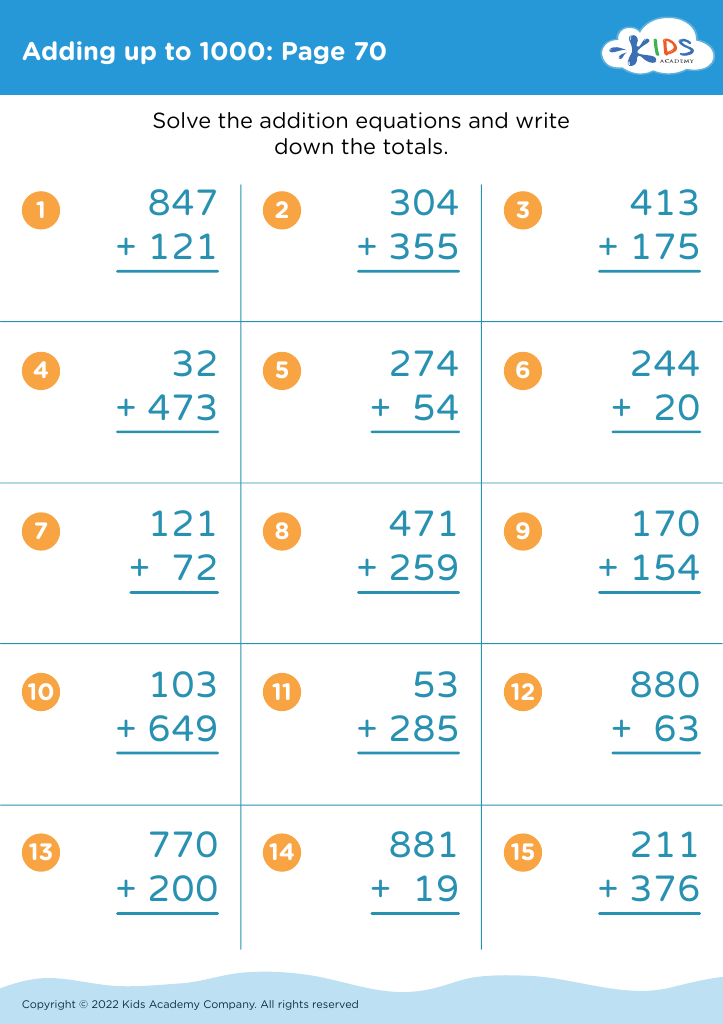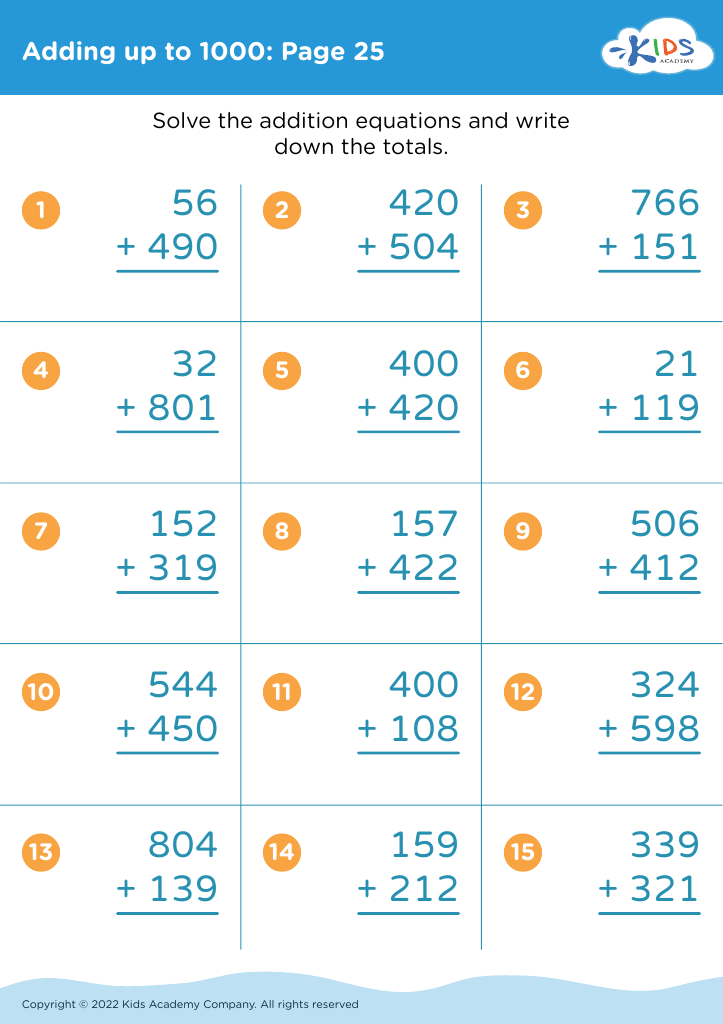Understanding fractions Adding up to 1000 Misc Worksheets for Ages 5-9
13 filtered results
-
From - To
Enhance your child's mathematical skills with our "Understanding Fractions" worksheets designed for ages 5-9! These engaging resources focus on introducing and explaining fractions through fun and colorful activities. Your little learner will explore concepts like halves, quarters, and whole numbers while practicing addition that totals up to 1000. Each worksheet is crafted to build confidence and reinforce foundational math skills, making learning enjoyable and interactive. Whether used at home or in the classroom, these worksheets are perfect for nurturing a strong understanding of fractions and basic math. Encourage your child to embrace math with enthusiasm today!
Understanding fractions is a fundamental skill that lays the groundwork for more complex mathematical concepts. For children aged 5-9, mastering fractions enhances their overall math fluency and problem-solving abilities. Parents and teachers should care about this because grasping basic fraction concepts helps children develop critical thinking skills, making connections between numbers and real-life situations, such as sharing pizza or measuring ingredients in cooking.
Teaching fractions at this early stage fosters a sense of accomplishment and confidence as children learn to visualize and manipulate parts of a whole. Moreover, understanding fractions is essential for comprehending operations like addition and subtraction, particularly when they combine to make whole numbers. This skill becomes increasingly important as children advance in their education, particularly when tackling percentages, ratios, and algebra.
Moreover, a solid grounding in fractions supports further learning in other subjects, such as science and art, where measurements and ratios are often required. Engaging with fractions adds excitement and variety to math lessons, encouraging a love for learning among young students. Ultimately, the ability to understand and use fractions effectively prepares children for future academic success, ensuring they are well-equipped to face more advanced mathematical challenges as they progress in their education.
